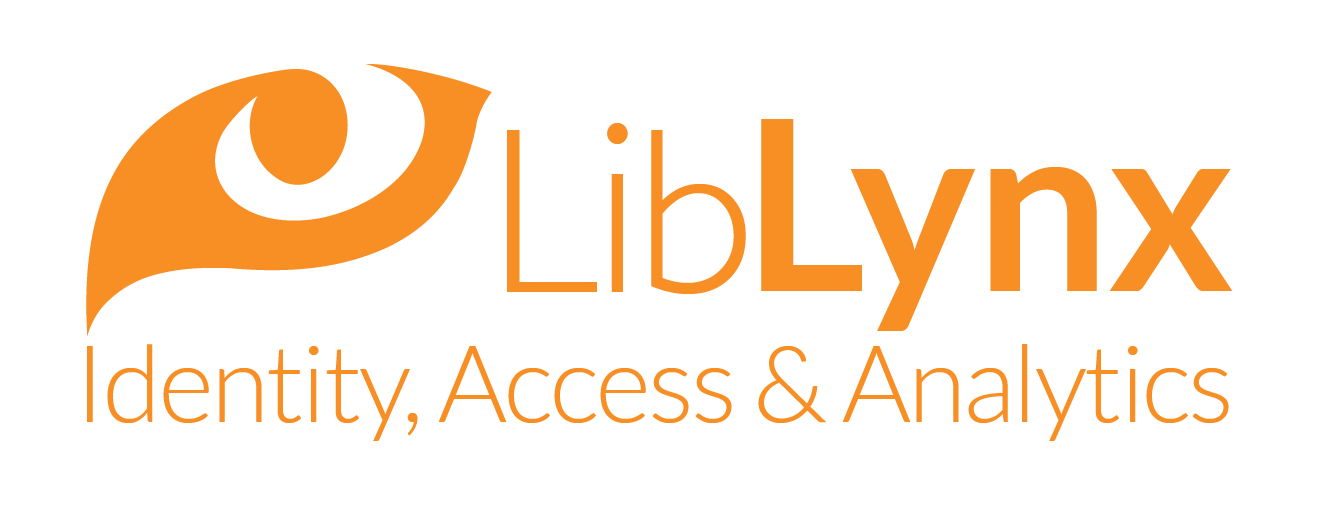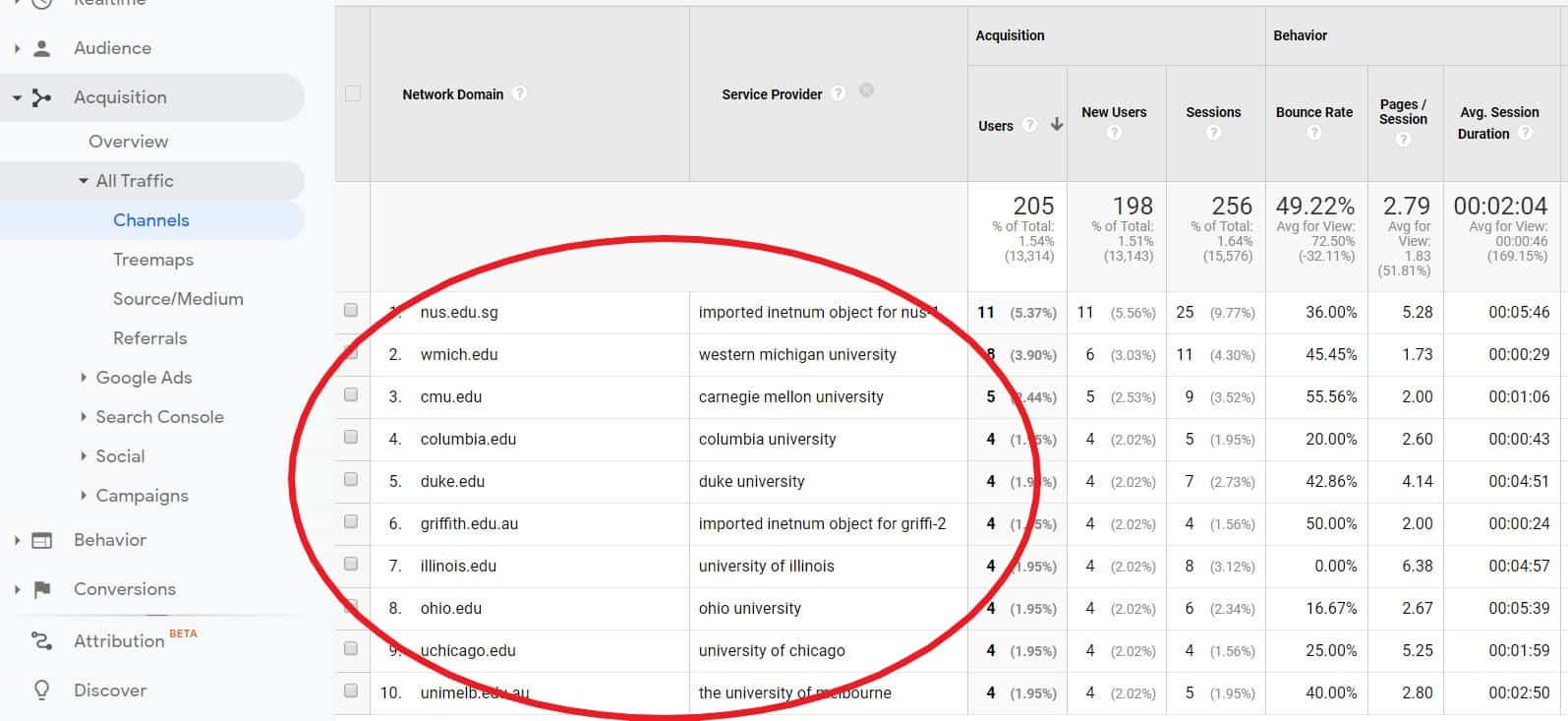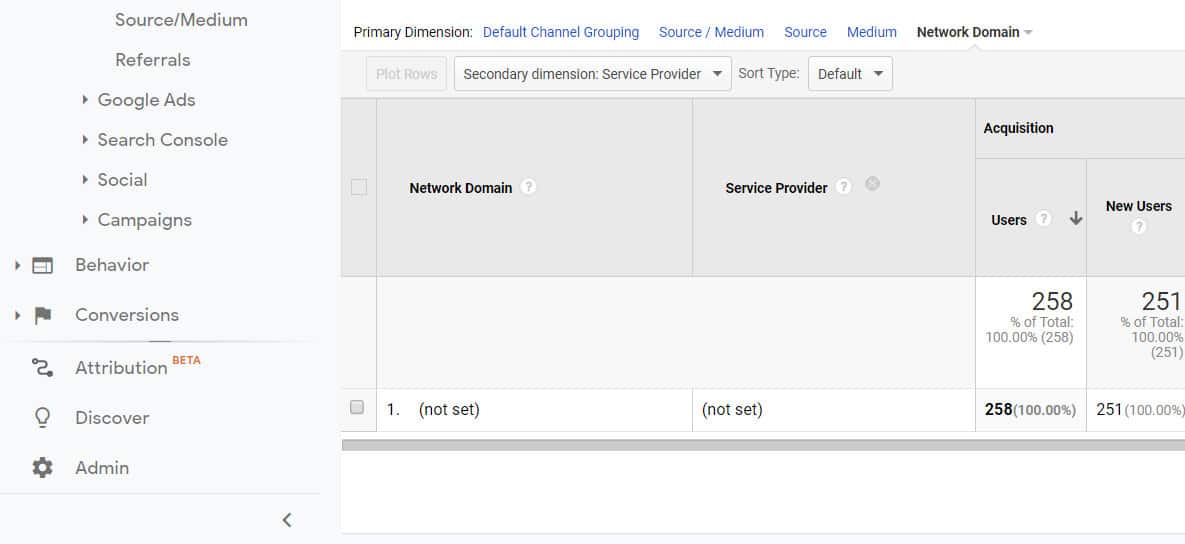Some of you may not have spotted this amidst the upheaval of the last few months – feels like years, right? – but Google Analytics (GA) just deprecated two very valuable metrics for publishers.
Usage reporting is part of the lifeblood of online publishing and so a significant proportion of publishers use GA for stats on usage of their website. We do too.
Now, if you’re a paywalled publisher then usage reporting is more straightforward in the sense that you already know your users and you’re probably already providing them with some form of usage reporting (COUNTER-compliant or otherwise).
But, if you’re an Open Access publisher then the chances are that you’ve probably been relying heavily on GA. In particular, there were two useful metrics that you’ll have appreciated because they indicate the organizational source of usage:
- Network Domain (“the fully qualified domain names of your visitors’ Internet Service Providers”)
- Service Provider (“the names of the Internet Service Providers used by visitors to your site”)
How it used to Work
Although these metrics are uninteresting for users accessing via their home internet providers, many users are accessing through organizational networks that reveal their organizational identity. Which is really valuable usage data for open access publishers looking to support the value they deliver to authors, funders, and institutions interested in transformational deals.
If you’re a GA user, you can see this for yourself by browsing reports for Acquisition > Channels, setting the Primary Dimension as ‘Network Domain’ and the Secondary Dimension as ‘Service Provider’.
For example, I filtered our traffic over a short period last year to show sources with .edu and generated this list in the image above.
How it (doesn’t) work now
However, GA have now rained on this parade. As of early February, this data is no longer available.
The suspicion in the community is that this is related to GDPR – while this information isn’t personally identifying, it will fall within the definition of personal data if it can be used to identify a user when combined with the other tracking information that GA collects (which is significant …).
Regardless of the reason, attempts to view this data for a few days earlier this month return a much less exciting screenshot:
We can fill that gap
Handily, LibLynx has partnered with PSI, the organization behind the IP Registry, to provide an on-demand, real-time analytics solution that fills this gap. Actually, it’s even better because we match incoming IP addresses against a repository of over 1.5 billion verified IP addresses for 70,000+ content licensing organizations worldwide.
We can build you a set of flexible reports that help you understand your audience across a range of valuable categories such as organizational type, geographical location and area of specialty.
Then, you can share the reports with your important stakeholders via a custom branded portal, or embed the data into web pages via our widget. Or ingest the underlying metrics into your data warehouse for further analysis.
Read about our Open Access Analytics, or contact us today to learn more.



